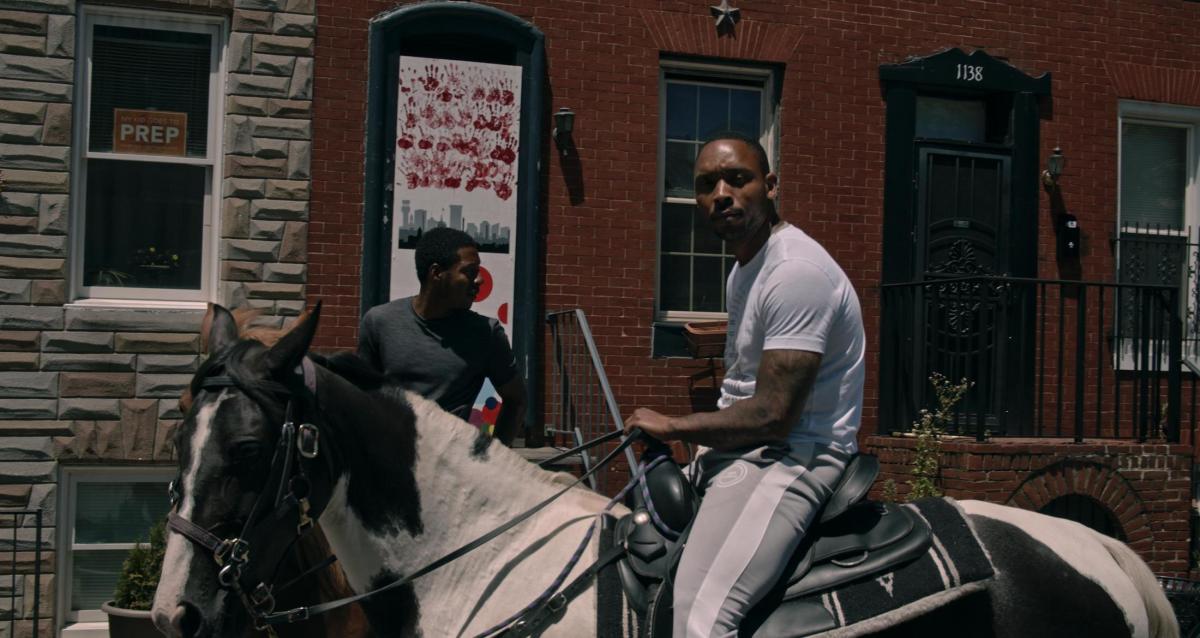
When, within the span of a several months, two books about the Gun Trace Task Force, Baynard Woods and Brandon Soderberg’s I Got a Monster and Justin Fenton’s We Own This City, came out I thought, “Do we really need two consecutive books on this subject?”
That was, of course, incredibly shortsighted on my part. There are many stories to be told about the Gun Trace Task Force—and likely many more to be told.
We can get a sense of the different approaches the writers took by comparing the adaptations that emerged from their books.
Last year, David Simon turned Fenton’s book into an incendiary mini-series. The slightly fictionalized series focused largely on the members of the Task Force themselves, especially the group’s swaggering leader, the cocky “supercop” Wayne Jenkins (played with menacing charisma by Jon Bernthal) and the various law enforcement officers who brought him down.
Conversely, I Got a Monster—the title is a direct quote from Jenkins, a reference to a really big potential score—has been turned into a 91-minute documentary, directed by Kevin Casanova Abrams. It is focused much more on the victims of Jenkins’ rogue gang, and the infuriating miscarriages of justice they were subjected to.
The film’s main character, if you will, is defense lawyer Ivan Bates, now the Baltimore State’s Attorney. He was one of the people who began to see a pattern in Jenkins’ corrupt policing and he represented many of the Task Force’s victims.
“The signs were there,” he says early in the film “We just didn’t pay attention.”
Bates comes across as a lawyer who really cares about justice and understands the dangers of systemic inequality—which bodes well for the city.
One thing Bates makes clear is how difficult it is to go up against a cop in court. The entire system is built to believe cops and distrust the people they’ve arrested. Jenkins’ gig was particularly insidious. He stole from people—some criminals, many not—planted drugs and money on them, and then arrested them. Once they were in the system, he and his merry band of badged marauders had the upper hand. Indeed, at one point, Bates has body cam footage of Jenkins breaking into a victim’s home and it’s not enough to sway a judge.
Another maddening point raised by the film: It’s very difficult to access an Internal Affairs report. So you can have a cop with multiple IA violations, as Jenkins did, and not be able to see the file, let alone reference it in court.
The film features some wonderful drone footage of Baltimore and tons of interviews with victims, law enforcers, and even Jenkins’ colorful man on the outside, gambler, drug dealer, and bail-bondsman Donny Stepp. Bald, muscular, and incredibly frank about his encounters with Jenkins—and his own less than virtuous role in the enterprise—he’s like a character straight out of a mafia film.
Both Woods and Soderberg are featured in the film—with Woods in particular proving to be an excellent raconteur (anyone who’s ever had a beer with him at Alonso’s already knew that). They are able to fill in the blanks in the story whenever it’s needed.
Among the victims, perhaps most heartbreaking are Jamal and Jovonne Walker, married party planners, who were found by Jenkins with $40,000 in cash in their car. Of course, he took this to mean that they were drug dealers. He arrested Jamal, and then illegally searched the Walkers’ home—while their children were sleeping. Jovonne was so scared of these plain-clothed men raiding her home, she called the police. And guess what happened? She was arrested for her trouble.
One of the film’s most stirring subjects is Levar Mullen, who spent 40 months in prison as a result of the Gun Trace Task Force, and is now an arabber. The arabbers’ stable is an oasis for him in the middle of a chaotic city. There is still something beautiful and surreal about the image of a man on a horse in the middle of a major metropolis. And it’s wonderful that Mullen has at last found peace.
However, even as Jenkins and most of his gang members are serving time in federal prison and his victims released from jail, justice has still not been fully served.
One victim is homeless. Many lost jobs and years of their lives in prison. Jovonne Walker says her arrest is still on her record, despite the circumstances surrounding it. But the film leaves room for at least a shred of optimism. As long as there are people willing to work toward justice, all hope is not lost.
As one community leader is shown shouting during a Freddie Gray rally, “There’s no justice, there’s just us.”
I Got a Monster opens tomorrow at the Charles Theatre. It is also available to stream on Amazon and Apple TV.
*An earlier draft of this review misstated the release timeline of the two books about the Gun Trace Task Force.
